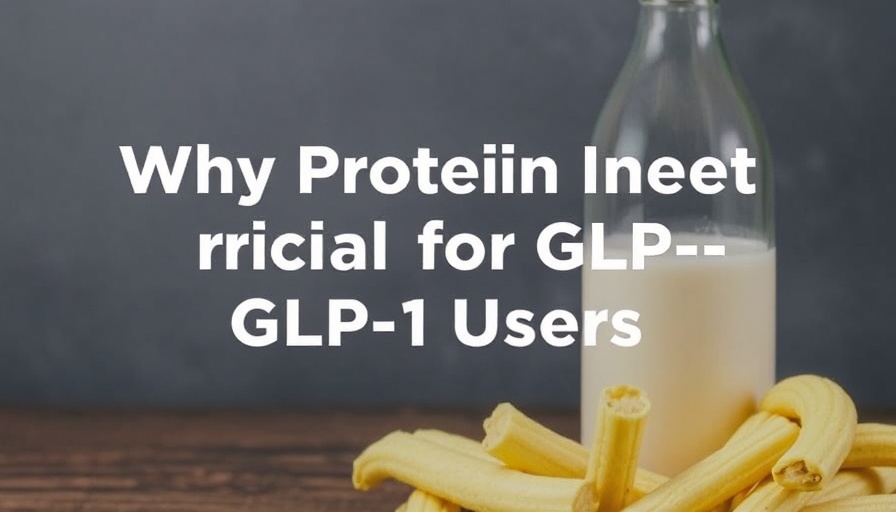
Understanding the Importance of Protein for GLP-1 Users
Many individuals around Pearl City, Hawaii, who have begun using GLP-1 medications for weight management might notice significant changes in their health journey. These changes can be both liberating and perplexing, particularly in relation to dietary requirements, notably, protein intake. Protein plays a vital role for GLP-1 users, helping to preserve muscle mass during weight loss. As you embark on this journey, it becomes crucial to understand why protein is essential and how to effectively incorporate it into your diet.
Why Protein Intake Matters
When taking GLP-1 medications, which slow stomach emptying and regulate hunger, one often eats less. This drop in caloric intake can lead to a consequential reduction in essential nutrients, particularly protein. Yet, the irony lies in the reality that with fewer calories, the necessity for protein increases. This nutrient is essential not just for muscle-building, but for maintaining a healthy metabolism, supporting biochemical reactions, and bolstering one’s immune system.
Listening to Your Body: The Balance Between Weight Loss and Well-being
As weight loss occurs, it’s easy to overlook the health signals your body sends. A sudden dip in energy levels or frequent colds may suggest an imbalance in your nutrition. It’s essential to recognize these signals as indications that your body may not be getting enough protein. Katherine Basbaum, a MyFitnessPal dietitian notes, 'If you’re losing muscle along with weight, you’re sacrificing the numerous benefits that come from maintaining lean tissue.' Understanding your body's needs is integral to successfully navigating this weight loss journey while on GLP-1s.
The Right Amount: How Much Protein Do You Need?
Determining the appropriate protein intake can depend on various factors, including weight, age, and activity level. The general recommendation is 0.36 grams of protein per pound of body weight. However, for those experiencing weight loss, this figure can escalate to 0.55-0.73 grams per pound. For our thriving Pearl City residents weighing 150 pounds, this equates to 83 to 110 grams of protein daily to effectively safeguard muscle mass. Older adults especially might benefit from higher protein levels to combat age-related muscle decline.
Strategies to Increase Protein Intake
With appetite suppression being a common experience on GLP-1s, ensuring an adequate protein intake can prompt some creativity. Consider incorporating diverse protein sources like legumes, lean meats, eggs, and dairy products into your daily meals. Meal prepping can also be a practical strategy, allowing you to plan balanced meals filled with protein. Logging your meals with tools like MyFitnessPal can provide insights on your dietary habits and help you stay on track towards your health goals.
Building Healthy Habits: The Role of Strength Training
Protein consumption must go hand-in-hand with regular exercise. Strength training, in particular, is a complementary practice to ensure muscle retention during periods of caloric deficit. It’s not just about lifting weights; even bodyweight exercises, walking, or yoga can help maintain muscle and promote overall fitness. Health experts consistently emphasize that combining protein intake with strength training is a powerful strategy for optimal weight management.
Embracing a Holistic Approach to Health
Ultimately, focusing on a balanced diet enriched with adequate protein not only supports your weight loss ambitions but nurtures overall health. Every meal, every protein-packed snack contributes to your body’s ability to function and thrive. So, while you embrace the changes that come with GLP-1 medications, remember to honor the body that carries you through every step of your day-to-day life.
Take Control of Your Health Journey
For the residents of Pearl City striving for a healthier lifestyle, an understanding of protein intake's critical role can empower you to make informed choices. Engaging with local health professionals or dietitians can provide personalized guidance tailored to your unique needs. As you navigate your journey, focusing on protein, activity, and overall nourishment can lead to sustained success in health and wellness. Remember, your well-being is worth the effort!
 Add Row
Add Row  Add
Add 




Write A Comment